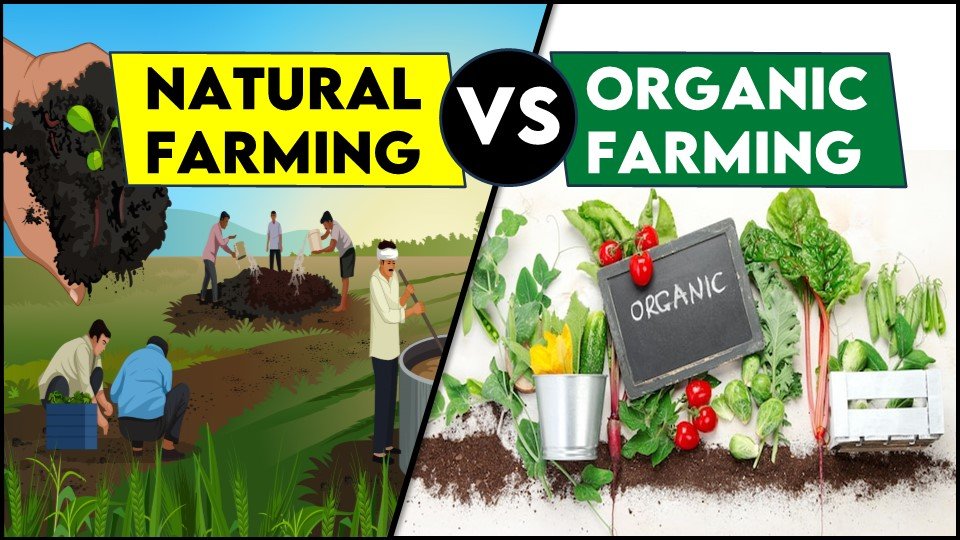What is the difference between organic and natural farming?
In recent years, there has been a growing interest in sustainable and environmentally-friendly agricultural practices. Terms like "organic" and "natural" have become increasingly common, but what exactly do they mean? Are they interchangeable, or are there distinct differences between the two? Let's delve into the world of farming practices to uncover the nuances between organic and natural farming.
What is Organic Farming
Organic farming is a holistic approach to agriculture that prioritizes soil health, biodiversity, and sustainability. Farmers who practice organic farming adhere to strict guidelines set forth by certification organizations, such as the USDA Organic or the European Union Organic regulations. These guidelines prohibit the use of synthetic pesticides, fertilizers, genetically modified organisms (GMOs), and antibiotics.
Instead, organic farmers rely on natural methods to control pests and diseases, such as crop rotation, companion planting, and the use of organic pesticides derived from natural sources like neem oil or pyrethrum. They also focus on building soil fertility through composting, cover cropping, and avoiding the use of synthetic fertilizers.
One of the key principles of organic farming is the promotion of animal welfare and environmental stewardship. Organic livestock must have access to outdoor areas and be fed organic feed free from synthetic additives and antibiotics. Additionally, organic farming practices aim to minimize environmental impact by conserving water, reducing pollution, and promoting biodiversity on and around the farm.
What is Natural Farming
While organic farming has clear regulations and certification standards, natural farming is a broader term that encompasses a range of agricultural practices focused on working with nature rather than against it. Natural farming emphasizes the use of sustainable, low-input methods that prioritize soil health, biodiversity, and ecological balance.
Unlike organic farming, there are no standardized certification programs or strict guidelines for natural farming practices. Instead, natural farmers often draw inspiration from traditional farming techniques, permaculture principles, and indigenous wisdom to create regenerative and self-sustaining agricultural systems.
Natural farming may involve practices such as minimal tillage, agroforestry, intercropping, and the use of beneficial microorganisms to enhance soil fertility and plant health. Farmers practicing natural farming may also incorporate elements of holistic management, biodynamic agriculture, or agroecology into their approach to farming.
Key Differences
While both organic and natural farming share common principles of sustainability and environmental stewardship, there are some key differences between the two:
Certification and Regulation: Organic farming is regulated by certification bodies that establish strict standards and guidelines for organic production. Natural farming, on the other hand, lacks standardized certification programs and is often guided by principles rather than regulations.
Input Use: Organic farming prohibits the use of synthetic inputs such as pesticides, fertilizers, and GMOs, whereas natural farming focuses on minimizing external inputs and relies on natural processes and resources to support plant and soil health.
Approach to Certification: Organic certification requires farmers to adhere to specific standards and undergo regular inspections to ensure compliance. Natural farming does not have a standardized certification process and relies on self-regulation and adherence to principles.
Philosophy and Principles: Organic farming is rooted in principles of environmental sustainability, animal welfare, and soil health, while natural farming encompasses a broader range of agricultural philosophies and may incorporate traditional, indigenous, or innovative practices.
Conclusion
In conclusion, while organic and natural farming share common goals of sustainability and environmental stewardship, they differ in their approach, certification standards, and philosophical underpinnings. Organic farming is a regulated system with strict guidelines for production, while natural farming is a more diverse and flexible approach that emphasizes working with nature to create regenerative agricultural systems. Whether you choose to support organic or natural farming practices, both offer viable alternatives to conventional agriculture and contribute to a more sustainable and resilient food system.



No comments:
Post a Comment